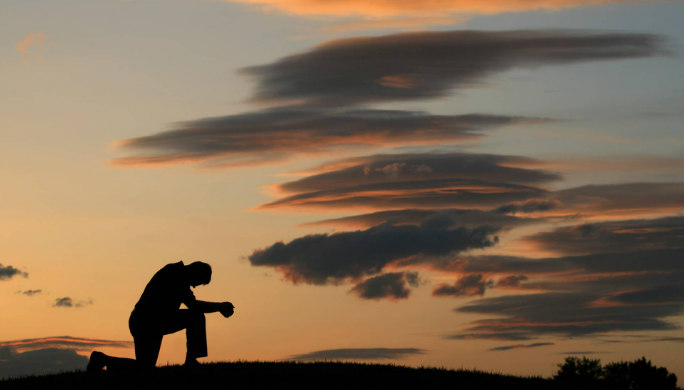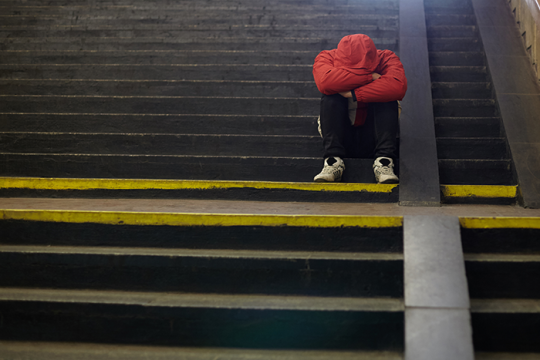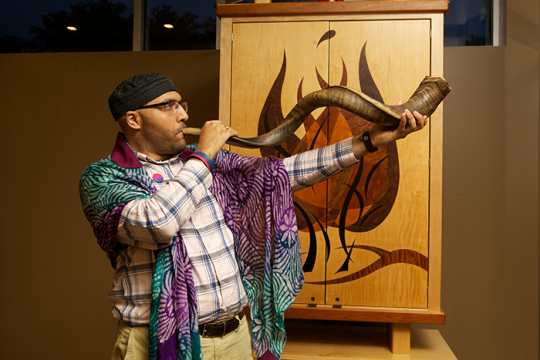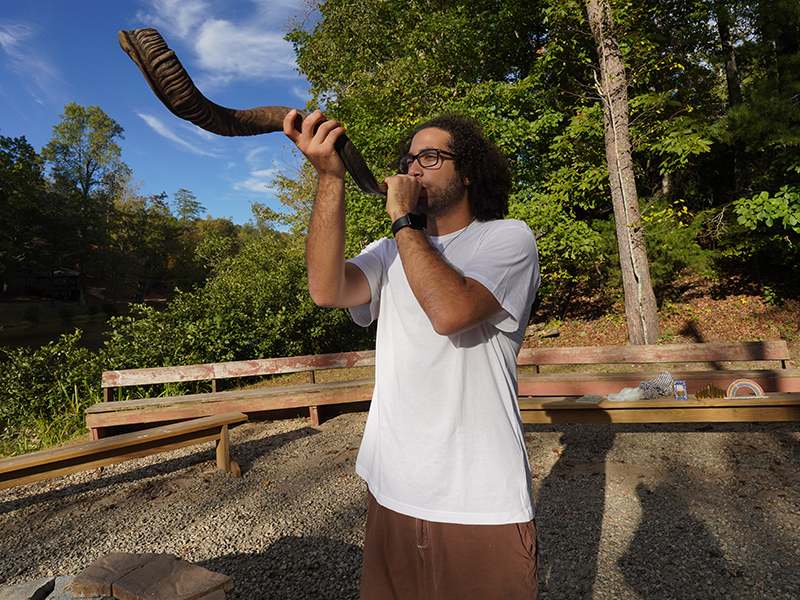
The Hebrew language is rich with meaning and beauty. It offers us multiple layers of depth and understanding, and often the simplest and most oft-used words can elicit powerful emotional responses.
In this week’s parashah, Naso, God instructs Moses to instruct Aaron and his sons to offer the people of Israel a blessing. What follows is a 15-word 3-5-7 structure traditionally known as the , which is one of the oldest biblical texts in existence.
In 1979, a scroll with this blessing was found in Jerusalem in an area known as Ketef Hinom just across the valley from the Old City a bit below and to east of where the King David Hotel sits today. This is the oldest known Biblical text that has been found, dating from the First Temple Period just prior to the destruction of Jerusalem and subsequent Babylonian exile in 587/86 BCE. Some say that each word represents one of the 15 stairs ascending to the area in the Temple in Jerusalem where the Kohanim (Priests) offered sacrifices.
The blessing is one of the most oft-repeated liturgical phrases in Judaism, and it has made its way into our tradition’s liturgy recited during the . Sephardic offers this blessing daily; parents say it to their children every Friday night as part of the Kiddush; and it is not uncommon to hear it recited to babies as part of their naming ceremony, to b’nei mitzvah students by their rabbis, and to wedding couples under the .
What’s more the root of the word is rich with meaning. It is most often attributed to the Hebrew word for knee, as a b’racha stems from the ancient form of prayer when one would bend the knee in prostration to show one’s deference before the Creator and to kneel in submission.
Throughout history, kneeling has been deployed as a sign of respect or reverence. We once kneeled before kings and queens and altars. It was customary to kneel in proposal of marriage (or at least men did in the old days). We kneel to get down to a child's level and we kneel to beg. Jews reference this kneeling in when we say:
"...כִּי-לְךָ תִּכְרַע כָּל-בֶּרֶךְ, תִּשָּׁבַע כָּל לָשׁוֹן"
May all the world's inhabitants recognize and know that to You every knee must
bend and every tongue must swear loyalty. Before You, Adonai, our God,
According to psychologist and author Jeremy Adam Smith, kneeling probably derives from a core principle in mammalian nonverbal behavior: Make the body smaller and look up to show respect, esteem, and deference. This is common, for example, in dogs and chimps, who reduce their height to show submissiveness. Kneeling can also be a posture of mourning and sadness. It makes the one who kneels more vulnerable. In some situations, kneeling can be seen as a request for protection – which could have been the reason for kneeling as an ancient form of blessing.
While we kneel in order to give power away, kneeling can be a powerful tool of protest as a way to deviate from routine and social norms, as was the protest of NFL players who "took a knee" during the ritual singing of the pregame national anthem.
But kneeling, as the world witnessed last week, also can become a weapon. In the now infamous case of the murder of George Floyd, the knee of police officer Derek Chauvin was, in fact, the weapon “causing asphyxia due to neck and back compression that led to a lack of blood flow to the brain,” according to early findings from the examination released Monday. Subduing a man into submission by kneeling on his neck for nine minutes forever may have altered the image of kneeling.
Tonight around the Shabbat dinner table – even if you don’t have children, or they are not with you – recite these 15 words of this ancient and powerful b’racha. Take a knee to show your vulnerability. Take a knee in protest and offer this blessing with the hopes of truly bringing a sense of peace and wholeness at a time when it is so deeply needed.
יְבָרֶכְךָ֥ יְהוָ֖ה וְיִשְׁמְרֶֽךָ׃
May God bless you and protect you.
יָאֵ֨ר יְהוָ֧ה ׀ פָּנָ֛יו אֵלֶ֖יךָ וִֽיחֻנֶּֽךָּ׃
May God deal kindly and graciously with you.
יִשָּׂ֨א יְהוָ֤ה ׀ פָּנָיו֙ אֵלֶ֔יךָ וְיָשֵׂ֥ם לְךָ֖ שָׁלֽוֹם׃
May God bestow favor upon you and grant you peace.
Related Posts

Embracing Jewish Tradition to Process Trauma and Grief

Five Takeaways from a Jewish Meditation Retreat for Activists

